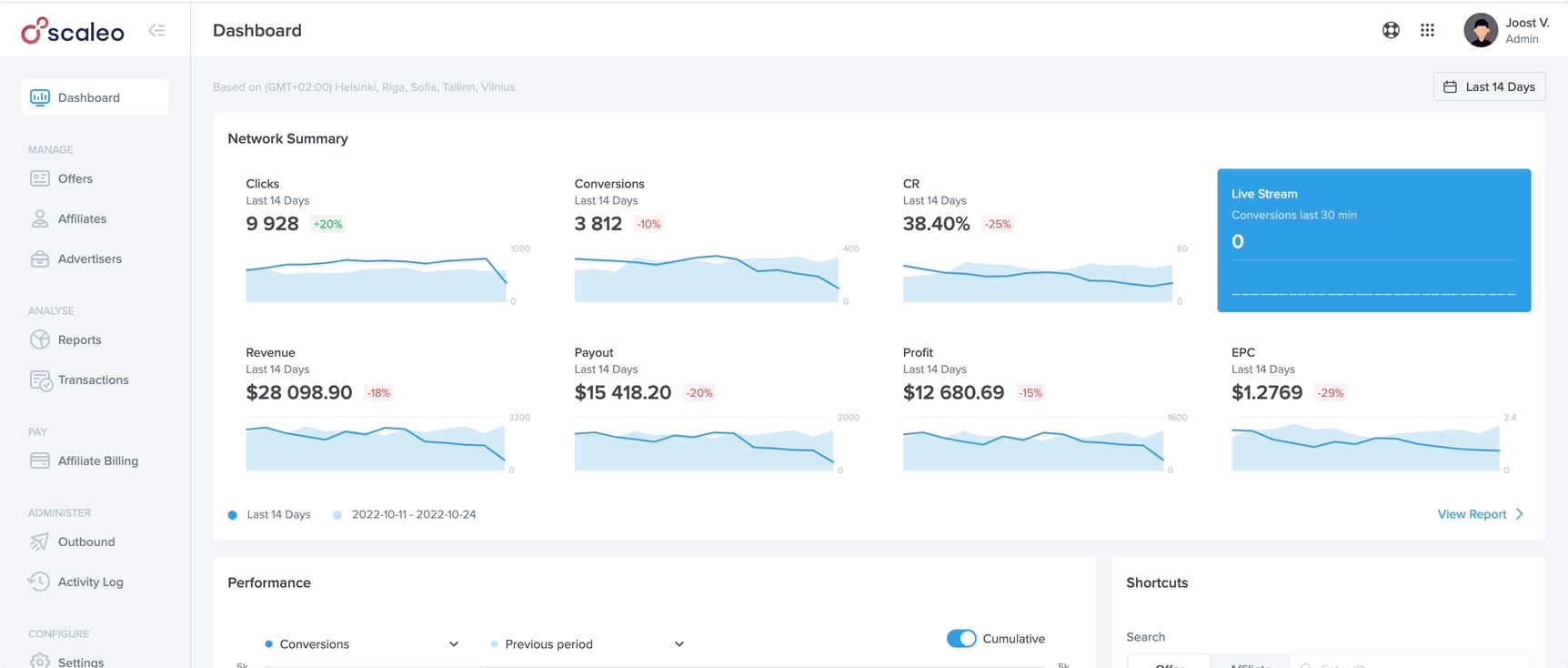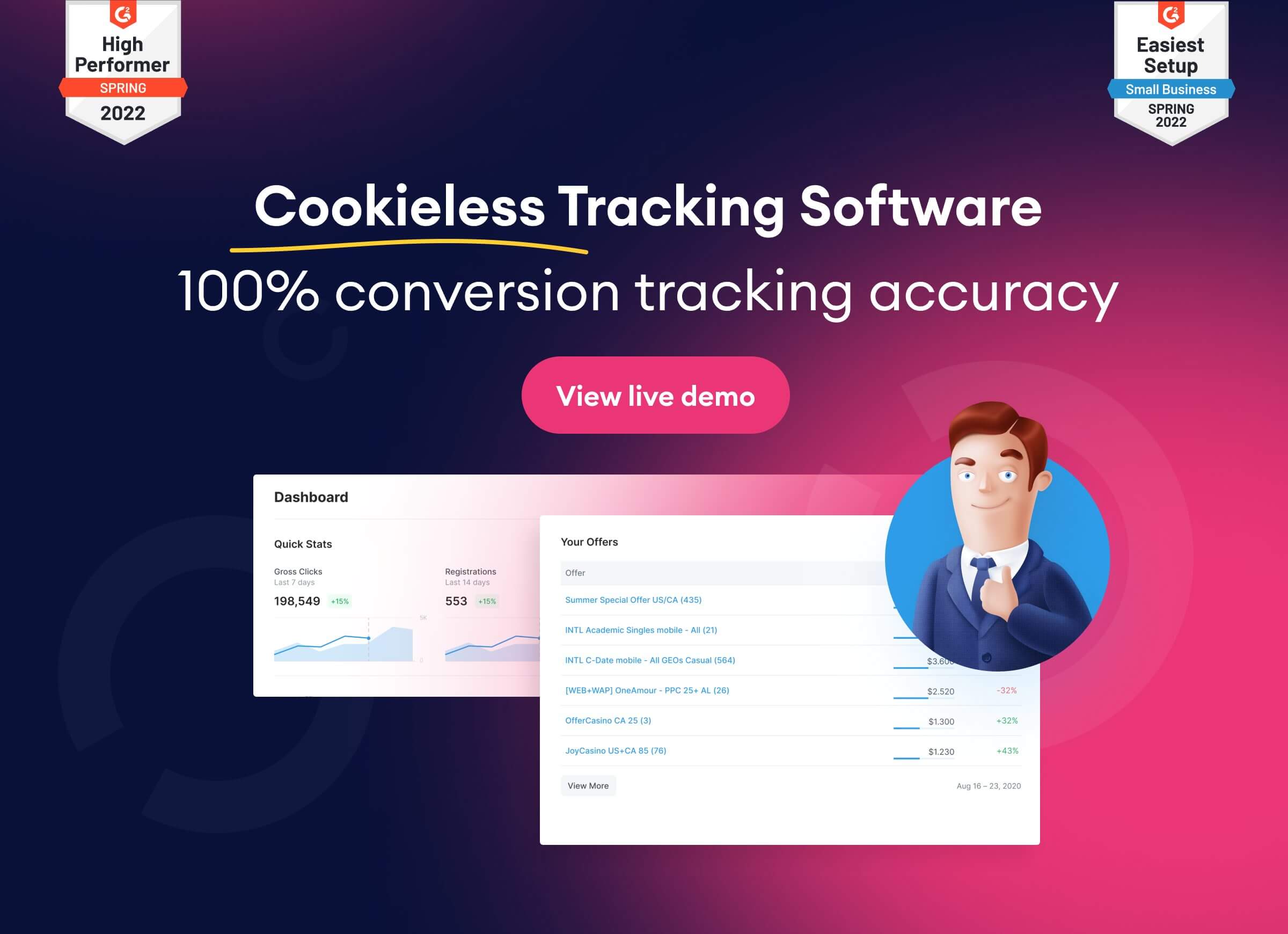Multichannel attribution in affiliate marketing refers to the process of identifying and assigning credit to the various marketing channels that contributed to a conversion or sale. It allows marketers to understand the effectiveness and impact of different marketing channels in driving customer actions.
In today’s dynamic digital landscape, businesses are increasingly relying on multiple channels to drive traffic, generate leads, and convert prospects into customers. Affiliate marketing plays a significant role in this process, with marketers partnering with affiliates to promote their products and services across various platforms.
As a result, understanding the impact of each channel on your marketing efforts is crucial to optimizing your campaigns and maximizing return on investment (ROI). This is where multichannel attribution comes into play.

In this blog post, we will discuss the importance of multichannel attribution in affiliate marketing, explore different attribution models, and explain why using Scaleo as your affiliate marketing software is the ideal solution for managing your campaigns.
How to Multichannel Attribution in Affiliate Marketing Work?
Multichannel attribution in the context of digital marketing can be implemented using various tracking methods, such as cookies, tracking pixels, and UTM parameters. Let’s take a look at a few highly technical examples of implementing multichannel attribution:
Using UTM Parameters
UTM (Urchin Tracking Module) parameters are tags added to the end of a URL to track the source, medium, and campaign of the incoming traffic. You can monitor which channels and touchpoints contribute to conversions by appending UTM parameters to your links.
Example of a link with UTM parameters (Ruby):
https://www.example.com/?utm_source=affiliate&utm_medium=banner&utm_campaign=spring_sale
Implementing Tracking Pixels
A tracking pixel (also known as a 1×1 pixel or web beacon) is a small, invisible image embedded in a web page or email that sends information to a server when loaded. By placing tracking pixels on specific pages or in emails, you can monitor user behavior and attribute conversions to different channels and touchpoints.
Example of a tracking pixel using an HTML image tag:
<img src="https://tracking.example.com/pixel.gif?affiliate_id=123&campaign_id=456" width="1" height="1" alt="" />
JavaScript Event Tracking
JavaScript can be used to track user interactions with various elements on your website, such as clicks, form submissions, and page views. By implementing JavaScript event tracking, you can collect data on user behavior and attribute conversions to different channels and touchpoints.
Example of a JavaScript click event tracking code snippet:
document.querySelector('#affiliate-link').addEventListener('click', function() {
// Send the event data to your analytics or tracking platform
sendEventData({
event: 'click',
source: 'affiliate',
medium: 'banner',
campaign: 'spring_sale'
});
});
Server-Side Conversion Tracking
Server-side conversion tracking involves sending data from your server to your tracking platform or analytics system when a conversion occurs. This method can be more accurate and secure compared to client-side tracking.
Example of a server-side conversion tracking code snippet in Python (using Flask):
from flask import Flask, request
import requests
app = Flask(__name__)
@app.route('/conversion', methods=['POST'])
def track_conversion():
# Extract data from the request
affiliate_id = request.form.get('affiliate_id')
campaign_id = request.form.get('campaign_id')
# Send the conversion data to your tracking platform
tracking_url = f'https://tracking.example.com/conversion?affiliate_id={affiliate_id}&campaign_id={campaign_id}'
requests.post(tracking_url)
return 'Conversion tracked', 200
if __name__ == '__main__':
app.run()
When implementing these technical examples, it’s essential to use an affiliate marketing software, like Scaleo, that can process and analyze the collected data, provide insights into the performance of your campaigns, and support multichannel attribution effectively.
The Importance of Multichannel Attribution in Affiliate Marketing
The value of multichannel attribution in affiliate marketing lies in its ability to provide a comprehensive understanding of the customer journey as well as the effectiveness of various marketing channels and affiliates. This data is necessary for optimizing marketing campaigns and maximizing return on investment (ROI).
The following are the primary advantages of multichannel attribution in affiliate marketing:
Tracking the Customer Journey
In affiliate marketing, the customer journey often involves multiple touchpoints across various channels before a conversion takes place. Multichannel attribution helps you track and understand these touchpoints, enabling you to gain valuable insights into the effectiveness of each channel and affiliate partner.
Optimizing Marketing Spend
By understanding the contribution of each channel and affiliate partner, you can allocate your marketing budget more effectively, focusing your resources on the most impactful channels and partners to maximize ROI.
Improving Affiliate Partner Relationships
With a clear understanding of each affiliate’s contribution to your overall marketing efforts, you can reward high-performing affiliates fairly and foster stronger relationships, leading to better collaboration and improved campaign performance.
Different Attribution Models
There are several attribution models available to help you assign credit to different channels and touchpoints in the customer journey. Choosing the right model depends on your specific marketing goals and the nature of your campaigns.
First-Click Attribution

In this model, all the credit for a conversion is given to the first touchpoint or channel that the customer interacted with.
Pros:
- Easy to implement
- Highlights the importance of initial customer interactions
Cons:
- Overlooks the contribution of subsequent touchpoints and channels
Last-Click Attribution
This model assigns all credit for a conversion to the last touchpoint or channel the customer interacted with before converting.
Pros:
- Simple to implement
- Identifies channels that are effective at closing sales
Cons:
- Ignores the role of earlier touchpoints in the customer journey
Linear Attribution
The linear attribution model distributes credit for a conversion equally among all touchpoints and channels involved in the customer journey.
Pros:
- Recognizes the contribution of all channels and touchpoints
- Fair distribution of credit
Cons:
- Doesn’t differentiate between the impact of various touchpoints
Time-Decay Attribution
In this model, more credit is given to touchpoints and channels closer to the time of conversion, while earlier touchpoints receive less credit.
Pros:
- Reflects the increasing importance of touchpoints as the customer journey progresses
- Encourages affiliates to focus on driving conversions
Cons:
- May not accurately represent the impact of top-of-funnel activities
Position-Based Attribution
The position-based attribution model assigns a higher percentage of credit to the first and last touchpoints in the customer journey, with the remaining credit distributed evenly among the other touchpoints.
Pros:
- Recognizes the importance of both initial and closing touchpoints
- Fairly distributes credit among all channels and affiliates involved
Cons:
- May not be suitable for campaigns with complex customer journeys
Choosing the Right Attribution Model
When selecting an attribution model, consider the following factors:
- Your marketing goals
- The nature of your campaigns
- The complexity of your customer journey
- The number of channels and affiliates involved
Ultimately, the best attribution model for your business will depend on your specific marketing objectives and the unique characteristics of your campaigns. It may be beneficial to experiment with different attribution models and compare their impact on your marketing performance to determine the most suitable model for your needs.
The Role of Affiliate Marketing Software
1. Streamlining Campaign Management
Affiliate marketing software plays a crucial role in managing and optimizing your marketing efforts. By automating various processes, such as tracking, reporting, and commission management, you can save time and resources while ensuring accuracy and efficiency in your campaigns.
2. Gaining Valuable Insights
A robust affiliate marketing software solution provides advanced analytics and reporting capabilities, enabling you to gain valuable insights into your campaigns’ performance. This data-driven approach allows you to make informed decisions to optimize your marketing efforts and maximize ROI.
5 Reasons to Choose Scaleo for Your Affiliate Marketing Needs
As you navigate the complex world of affiliate marketing, having a reliable and powerful platform to support your campaigns and help drive success is critical. Now we’ll look at five compelling reasons why Scaleo should be your go-to solution for affiliate marketing.

Scaleo offers an all-in-one solution designed to help you optimize your campaigns, maximize ROI, and stay ahead of the competition, from advanced features to an intuitive interface. So, let’s get started and see why Scaleo is the best choice for managing your affiliate marketing efforts.
1. Comprehensive Multichannel Attribution Features
Scaleo offers advanced multichannel attribution capabilities, allowing you to track the performance of your campaigns across various channels and touchpoints. With its customizable attribution models, you can select the most appropriate model for your marketing goals and gain valuable insights into the effectiveness of your campaigns.
2. Intuitive Interface and Ease of Use
Scaleo’s user-friendly interface makes it easy for users of all experience levels to navigate and manage their campaigns. This streamlined approach saves time and effort, enabling you to focus on optimizing your marketing efforts and driving better results.
3. Customizable and Scalable Solution
As your business grows and evolves, Scaleo’s platform can be tailored to meet your specific needs and scale with your company. This ensures that your affiliate marketing efforts remain efficient and effective over time.
4. Seamless Integration
Scaleo’s robust integration capabilities allow you to connect with a wide range of third-party applications and services, such as CRM systems, payment gateways, and email marketing tools. This compatibility streamlines your workflows and centralizes the management of your affiliate marketing campaigns.
5. Exceptional Customer Support
Scaleo provides dedicated customer support, offering personalized assistance to help you maximize the potential of your affiliate marketing efforts. Additionally, the Scaleo team brings industry expertise and best practices to the table, ensuring your campaigns are built on a strong foundation for success.
Conclusion
Multichannel attribution is an essential aspect of affiliate marketing, enabling you to understand the impact of each channel and touchpoint on your campaigns’ performance.
- Multi-channel attribution helps marketers track and measure the performance of various marketing channels involved in the customer journey.
- It assigns credit to each touchpoint along the customer journey, giving insights into the influence and effectiveness of different channels.
- By understanding multi-channel attribution, marketers can optimize their marketing efforts, allocate budgets effectively, and improve overall campaign performance.
By choosing the right attribution model and leveraging the power of affiliate marketing software like Scaleo, you can optimize your marketing efforts, build stronger relationships with your affiliate partners, and maximize ROI.

Last Updated on January 17, 2024



